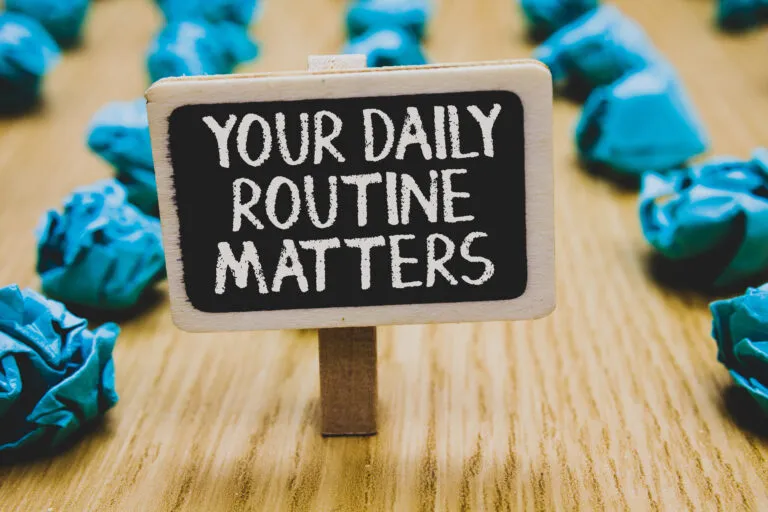
How to Stay Connected and Create Meaningful Moments
Many parents fear missing their children’s milestones due to their busy schedules and conflicting priorities.
It’s an unavoidable reality…
But the sad truth is that neither you nor any parent can witness every single moment in their child’s life.
Unfortunately, many of us have missed our child’s first steps or words or, on occasion, have missed seeing their child receive an award at school.
Often, you’ve been stuck in traffic, at work, travelling on business, or where life requires you to be at more than one place at once—dropping your child to dance while another is performing at a school concert.
These intimate, personal, once-in-a-lifetime moments cause immense guilt and worry in us all as parents, making us question our ability to be present for our children and effectively balance work and family responsibilities.
Whether you’re working outside the home or not, children will inevitably reach milestones when you’re not looking, even if you’re in the next room.
That’s life.
Yes, it can be heart-wrenching, but it’s crucial to understand that missing these moments doesn’t diminish your role or the love you provide to your children.
The real issue is how you can manage these feelings and be proactive about creating meaningful connections with your children when you are with them, put strategies for when you cannot, and make memories for yourself and your child as if you were there.
Accepting the challenge of missing various milestones is a crucial step that can empower you to approach raising your children more creatively. Instead of focusing solely on traditional milestones, you can define and adopt strategies that ensure meaningful moments with your children, fostering increased attachment and development.
Research supports this approach.
According to a study published in the Journal of Child and Family Studies, the quality of time parents spend with their children is more important than the quantity of time. Even if parents miss certain milestones, they can still positively impact their children’s development by creating quality interactions during their time together.
As a parent, you must focus more on creating meaningful moments to foster your children’s development.
Here’s how you can do it.

Anticipate and Plan for the Moments that You’ll Miss
Despite your best efforts, there could be instances where life or work requires immediate attention, causing you to miss your child’s school awards ceremony, concert, or sports game.
Even in these situations, you can still be part of these memorable moments:
- Arrange for a friend to capture the event through photos or videos.
- Connect with your child via video call before or after the event, and celebrate their achievements.
- Spend time before and after the event to discuss the reasons for your absence and hear about your child’s experiences.
Each action demonstrates your love, interest, and commitment to being involved in your child’s life—you are a devoted parent—which is immensely more important than merely showing up but not interacting.
Children aren’t silly; they can tell the difference immediately between faking interest and genuinely being present for them and their special moments, whether you’re physically present or not.
It would help if you also realised that milestones are more than moments.
Milestones live on as memories when celebrated, retold, and relived.
Creating a dedicated space, for example, to exhibit your child’s achievements, such as artwork, certificates, or photographs, is a fantastic way to turn milestones into memories.
A visual display of progress can significantly enhance your children’s confidence and self-esteem.
Documenting your child’s achievements and everyday moments using photos or videos can be beneficial. Photos or videos taken by you, your spouse, or a friend allow you to compile these into digital albums and share them with others, grandparents, siblings, or for family photo and video nights.
Naturally, there can be times when things go differently than planned.
You may miss a milestone due to unforeseen circumstances.
It’s important to remember that it’s okay, and one missed moment doesn’t define you or your child.
Use the abovementioned strategies to ensure continued participation and interaction with your child during such times.

Create Opportunities for Personalised Milestones
The great news is that you can create and develop unique milestones for your children anytime.
Tailoring an activity to your child’s interests and abilities is an easy-to-implement means to help them achieve and share new milestones with your involvement.
Examples include learning a new skill or sport, reaching a personal goal such as achieving a personal best time swimming 50 metres or mastering a hobby.
Focusing on individual achievements can help create opportunities for milestone achievements, creating space for you and your children to create, define, and ultimately celebrate the meaningful progress to your child.
Establishing regular family traditions, for instance, creates lasting memories and strengthens bonds between everyone.
Here are some easy ways to get started:
- Weekly special meals like “Taco Tuesdays” or “Pizza Fridays.”
- Family game nights for healthy competition and bonding.
- Annual family photo albums to document growth and memorable moments.
- Nature exploration days to encourage appreciation for the outdoors.
- Simple exercises together like stretching, yoga, or even a family dance party.
- Create a family bucket list ****of activities or goals the family wants to achieve together.
- Plan special one-on-one time to focus on each of your children’s interests to create unique bonding experiences.
Integrate Learning into Daily Tasks
Milestones go beyond just significant achievements or first-time events.
Daily life experiences, such as personal hygiene and household chores, also contribute to your child’s growth, fostering traits like responsibility and independence.
Turning regular chores and routines into learning activities helps your child develop various skills and makes them feel included and valued. You’re creating moments of first-time learning, witnessing your child trying new things, and celebrating their accomplishments, all while imparting crucial life lessons.
For instance, while doing laundry, get your child to help push laundry baskets or sort clothes by colour, or involve your child in cooking tasks, like adding ingredients or stirring.
Cooking helps improve your child’s fine motor skills and introduces basic math concepts like measuring.
Fostering independence by teaching age-appropriate self-care skills is equally important.
Encourage your children, for example, to practice skills like buttoning, zipping, and using utensils during dressing and feeding times.
Everyday ‘life-learning’ will help enhance their motor skills, independence and development.
Start Managing Your Children’s Milestones From Today

Feeling some sadness or guilt about missing certain moments in your child’s life is natural.
These individual events do not define your children’s development and your relationship with them.
Milestones are moments that, if missed, can be captured by others, relived and retold by your children and celebrated together long after the milestone event.
By being creative, implementing strategies to cover missed milestones and being proactive about creating special moments at home, you can make your children feel valued and celebrated.
Start integrating these practices into your daily routine to create a loving, supportive environment for your children.
Cherish the time you spend together, celebrate their growth, and build lasting memories to impact their development and your relationship with them positively.


